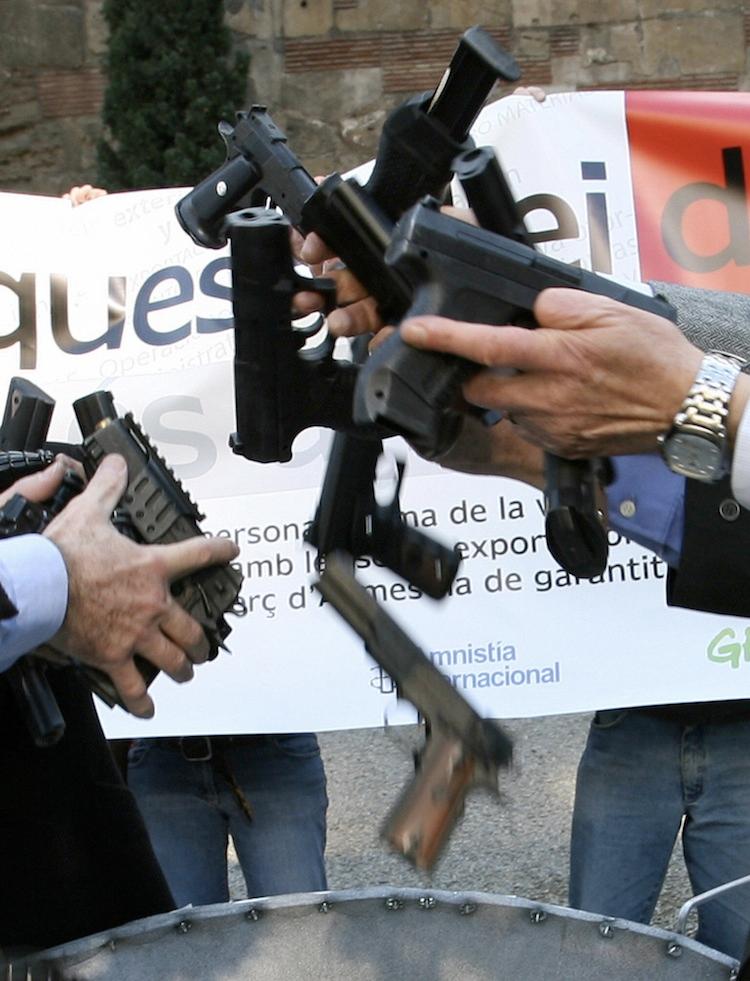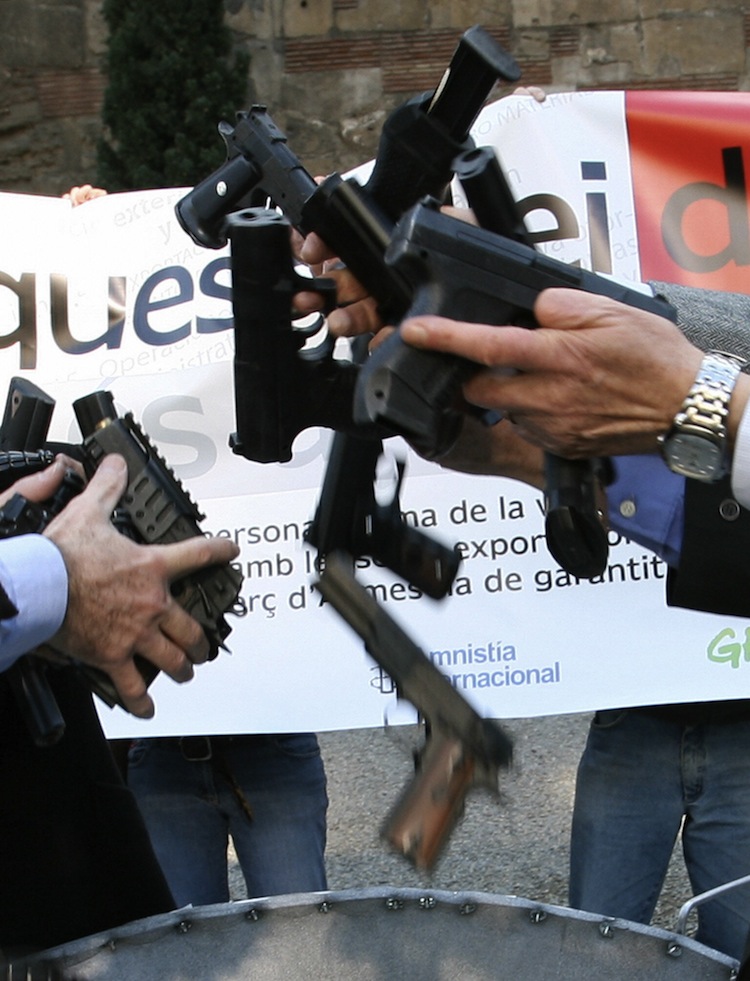Countries under arms embargoes imported $2.2 billion in weapons between 2000 and 2010, according to aid agency Oxfam in a report on Thursday.
For example, Burma broke embargoes and bought more than $600 million in weapons in that time period, Iran bought an estimated $574 million between 2007 and 2010, and the Democratic Republic of the Congo purchased $124 million between 2000 and 2002, Oxfam said.
Syria imported $167 million in air defense systems and $1 million in small arms and light ammunition in 2010, Oxfam said. Some of these weapons have been used in the government’s 14-month-long crackdown on dissent, which the United Nations estimates has killed 9,000.
“Existing arms embargoes are far too easy to break or ignore. The lack of international regulation means that states under embargo have been importing whatever weapons they choose with impunity,” Anna Macdonald, Oxfam’s Head of the Control Arms Campaign, said in a statement.
During this time period, there have been 26 United Nations regional or international arms embargoes in place.
Oxfam pointed out that “the global trade in most consumer goods—including bananas, coffee and cocoa—is tightly-regulated, but there are currently no legally-binding, robust and universally applicable criteria governing the transfer of weapons across borders.”
The current embargo system is essentially “an intricate patchwork of regional and sub-regional agreements” that lacks coherence and structure, the aid group said.





